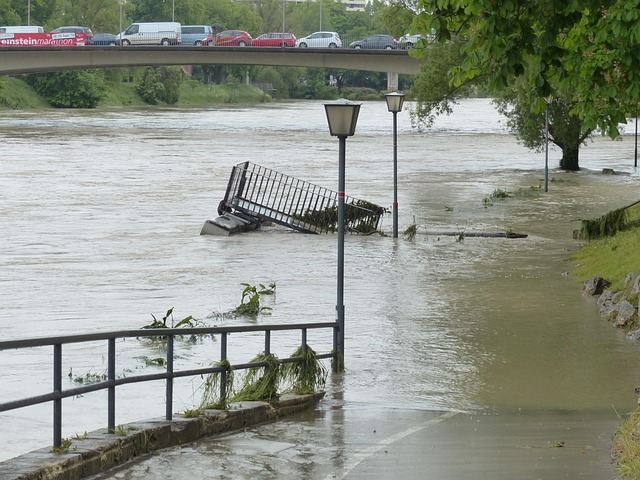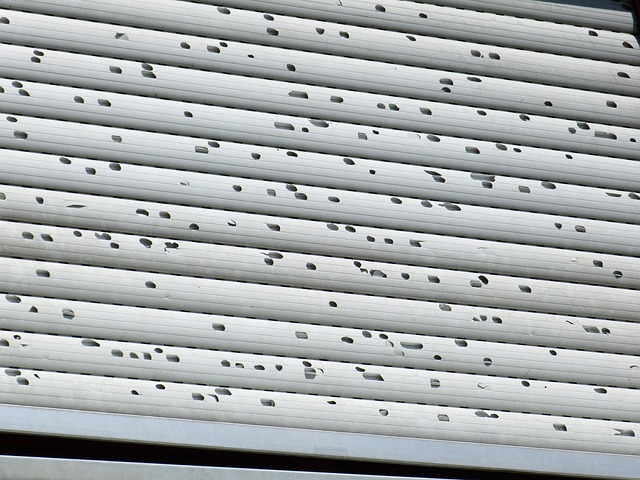Denver's geographical location makes it prone to severe weather and flooding, leading to property damage. Advanced Restoration Colorado offers specialized Denver flood damage restoration services, including assessment, containment, drying, and mold mitigation. In case of a basement flood, immediate actions like shutting off power, removing water, and documenting damage are crucial. Professional help is recommended for efficient cleanup using advanced equipment like high-pressure water extractors and dehumidifiers. Preventative measures include proper drainage systems, sealing cracks, and elevating appliances to reduce future flood risk.
“Denver, with its changing weather patterns, faces a unique risk of basement floods. This article delves into comprehensive solutions for Denver flood damage restoration, offering a detailed guide for homeowners facing this challenge. From understanding the specific risks to implementing advanced restoration techniques and preventive measures, we explore every step required to mitigate and prevent future flooding. Learn how immediate actions after a basement flood can save you time and money, and discover the latest tools used in restoration.”
- Understanding Denver's Unique Flood Risk
- Immediate Actions After a Basement Flood
- Assessing Water Damage & Restoration Priorities
- Advanced Restoration Techniques & Tools
- Preventing Future Basement Floods in Denver
Understanding Denver's Unique Flood Risk

Denver, nestled at the foot of the Rocky Mountains, presents a unique challenge when it comes to flooding. The city’s elevation and geographical location make it particularly vulnerable to sudden and severe weather events, which can lead to devastating Denver flood damage restoration needs. Heavy rainfall, snowmelt, and even thunderstorms can cause basements and homes to fill with water, leading to extensive property damage. Understanding these risks is the first step in preparing for and mitigating potential losses.
Advanced Restoration Colorado offers specialized services for denver flood cleanup, ensuring properties are restored to their pre-flood condition. Their team is equipped with cutting-edge equipment and expertise to assess, contain, and dry out flooded areas efficiently. Knowing how to dry out a flooded home is crucial in preventing mold growth and structural damage, which often accompanies water intrusion. With swift action and professional Denver flood damage restoration techniques, homeowners can protect their investments and restore their homes to safety and comfort.
Immediate Actions After a Basement Flood

After a basement flood in Denver, immediate action is crucial for effective Denver flood damage restoration. The first step is to turn off the power at the main circuit breaker to prevent electrical shocks and further damage. Next, remove any standing water using buckets or pumps, being mindful of potential contaminants. Don’t forget to document the damage with photos for insurance claims.
For a denver residential flood cleanup, prioritize drying out the area immediately to avoid mold growth. Remove wet materials like carpeting or furniture that can’t be thoroughly dried within 24-48 hours. Remember, restoring after heavy rain floods requires quick action and professional help for optimal results.
Assessing Water Damage & Restoration Priorities

When dealing with a Denver basement flood, immediate action is crucial for minimizing damage and facilitating a swift restoration process. The initial step involves assessing the extent of water intrusion and its impact on various areas of the basement. This includes evaluating structural integrity, identifying sources of leakage, and determining the level of contamination from water that may have carried debris or even hazardous materials. A comprehensive inspection ensures that every aspect of the basement is addressed during the restoration process.
Prioritizing restoration tasks in a Denver flood damage scenario requires a systematic approach. The most critical step is to stop the water flow and extract excess moisture to prevent further deterioration. This often involves repairing or replacing damaged walls, ceilings, and floors. Following this, specialized cleaning and decontamination are essential, especially if there was any interaction with sewage or other contaminated sources. Once these immediate tasks are completed, professionals can focus on roof restoration Denver-specific needs, ensuring the basement is secure and dry before addressing any cosmetic repairs, such as repainting or replacing fixtures, to restore the space to its pre-flood condition.
Advanced Restoration Techniques & Tools

In the realm of Denver flood damage restoration, advanced techniques and tools have become indispensable in addressing basement flooding issues. Modern equipment such as high-pressure water extractors, air movers, and dehumidifiers play a pivotal role in expediting the cleanup process. These tools are designed to efficiently remove standing water, reduce moisture levels, and prevent mold growth—essential steps in any basement flooding restoration guide.
Professional Denver flood damage restoration companies invest in cutting-edge technology, ensuring swift and effective response to property owners facing basement flooding. From initial assessment to final remediation, these companies employ specialized crime scene cleanup Denver techniques tailored to the specific extent of water damage. Their expertise includes not just the removal of visible water but also addressing hidden moisture sources and structural drying, crucial elements in a comprehensive basement flooding restoration guide.
Preventing Future Basement Floods in Denver

Preventing future basement floods in Denver involves a multi-step approach that addresses both immediate and long-term concerns. After experiencing a flood, it’s crucial to call professionals like those specializing in fire damage restoration Denver or crime scene cleanup Denver for initial response and water extraction. This swift action is vital to mitigate mold growth and structural damage.
Beyond immediate repair, focusing on proactive measures can significantly reduce the likelihood of future basement floods. This includes installing proper drainage systems around your home, ensuring downspouts direct rainwater away from the foundation, and sealing any cracks or openings that could allow water penetration. Regular inspection and maintenance of these systems are also essential to ensure their effectiveness over time. Additionally, consider elevated appliances and flooring in flooded kitchen restoration tips to create a higher barrier against potential future inundation.
Basement floods in Denver can be devastating, but understanding the unique risks and taking proactive measures can significantly reduce potential damage. By promptly assessing water intrusion, implementing advanced restoration techniques, and preventing future occurrences through effective drainage systems and regular inspections, homeowners can ensure a swift return to normalcy. When it comes to Denver flood damage restoration, a comprehensive approach that addresses immediate needs and long-term solutions is key to safeguarding your home and belongings.